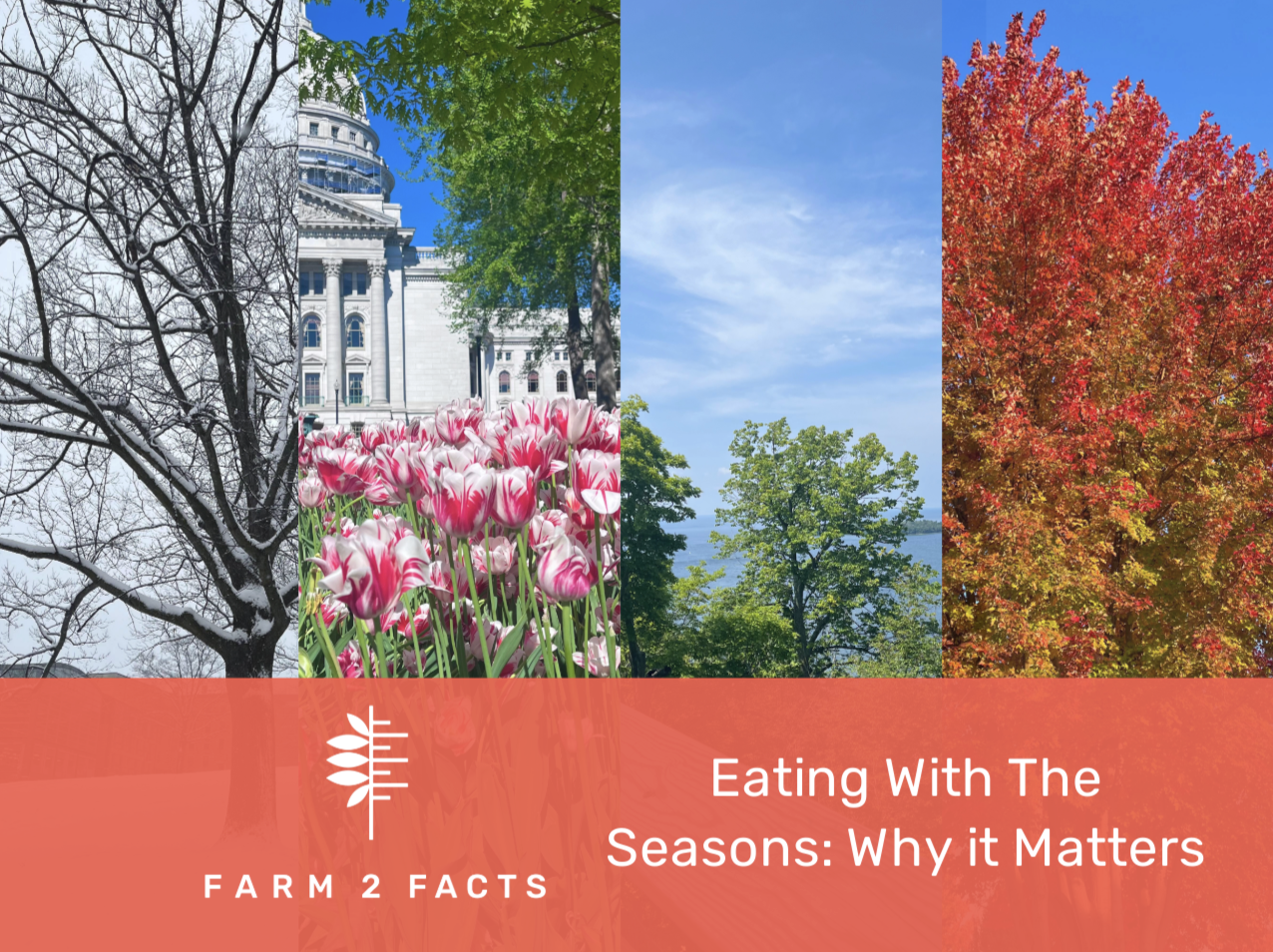
Written by Olivia Nygaard
What does it mean to eat seasonally?
To eat seasonally means to choose vegetables, fruits, and other foods that are grown and harvested in your area at a specific time of year.
So why should this matter to you?
Health Benefits: Foods harvested while at their peak ripeness often have higher nutritional content, which offers more vitamins and minerals for you to consume. Seasonal foods also may be more aligned with your body’s nutritional needs throughout the four seasons. For example, in the winter, you may want to reach for root vegetables, like carrots or sweet potatoes, as they boost serotonin and provide vitamin C, which can be crucial for getting through colder and darker climates. Following a seasonal cycle can help you implement a diverse diet and make the process of eating a fun and spontaneous experience!
Quality: While eating seasonally, you may notice that the produce tends to taste better. When fruits and vegetables are harvested at the optimal time, they are fresher and definitely quite tasty. Because of this, the need for preservatives and artificial ripening agents that we often see used in “out-of-season” foods in unnecessary.
Community Support: If you choose to eat seasonally, you will tend to choose a source to purchase from that benefits your community. This means buying from local farmers or markets, which helps strengthen your local economy and support any near-by agriculture.
Climate Change Impact: Seasonal eating can also affect your impact on the Earth’s climate. You can refer to one of our previously written blog’s, “Local Food Systems as a Tool for Climate Change Mitigation,” to learn more about how your eating could have a positive effect on the environment.
To help you implement seasonal eating habits, we have listed examples of produce we recommend you eat during each season.
Fall: Apples, Pumpkins, Brussels Sprouts, Sweet Potatoes, Grapes
Winter: Oranges, Grapefruit, Kale, Carrots, Turnips, Beets, Cabbage, Butternut Squash
Spring: Asparagus, Peas, Spinach, Radishes, Strawberries
Summer: Tomatoes, Zucchini, Corn, Peaches, Blueberries, Raspberries




